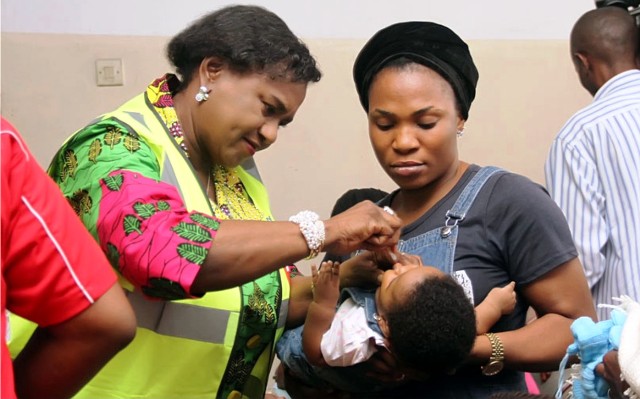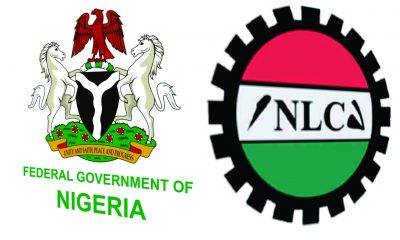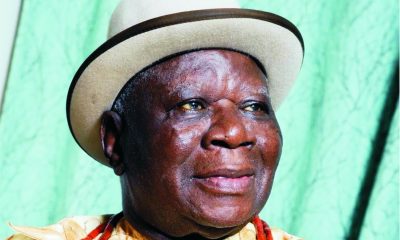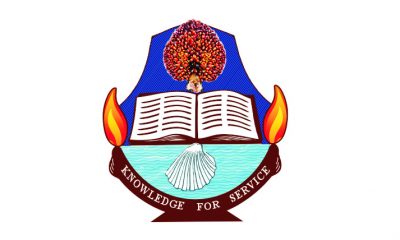Health
Yellow Fever Vaccination: Rivers Speeds Up Mop-Up Exercise

The first stream of Yellow Fever vaccination, which started on February 28 in Rivers State and officially ended on March 8, 2020, still continues with a mop-up of identified areas.
Making this known in an exclusive interview today, the Health Educator, Rivers State Ministry of Health, Dr Doris Nria, said the mop-up is necessitated by the fact that some areas could not be reached during the exercise proper.
“Mop-up means trying to cover up gaps, the people they (health workers) could not reach during the (immunisation) exercise”, Nria said.
Such areas, she said, include densely populated Local Government Areas (LGAs), such as PHALGA and Obio/Akpor.
Nria stated that the exercise generally was a huge success in all of the LGAs, but for some minor challenges that were promptly taken care of.
When The Tide visited Bori during the exercise, the turn out was overwhelming.
According to the Supervisor of Team 1 in Khana LGA, the turn out surpassed the targeted 300 number of persons by a far high margin. It was the same story from most of the other Team Leaders across the LGA.
The only challenge, however, a momentary resistance from some members of the community in Ward 11, which was promptly resolved by the community leaders. Afterwards, the exercise went on smoothly.
The second minor challenge was an internal disagreement among members of the Immunisation team: some of them hinted that while they were engaged as recorders, on the field they were made to control the crowd.
In Abuloma, specifically at Edeokia Junction, which was under Team 217, some members of the community refused to give their bio-data during the house-to-house mobilisation, saying they would prefer to go to the Immunisation centres themselves.
At the end of the day, some of these ones did not turn up to be immunized, for various reasons, which, from investigation, has to do with fear of the unknown.
Inspite of the stated minor setbacks, Dr Nria said the exercise was a success in totality.
The mop-up, according to Dr Nria, will continue up to Friday in some LGAs.
By: Sogbeba Dokubo
Health
‘How Micro RNA Research Won Nobel Prize’
Two United States scientists who unraveled the human micro RNA have won the Nobel Prize in Physiology or Medicine 2024.
Victor Ambros and Gary Ruvkun won the coveted prize for their work on microRNA as their discoveries help explain how complex life emerged on earth and how the human body is made up of a wide variety of different tissues.
MicroRNAs influence how genes – the instructions for life – are controlled inside organisms, including humans.
Every cell in the human body contains the same raw genetic information, locked in our DNA.
However, despite starting with the identical genetic information, the cells of the human body are wildly different in form and function.
The electrical impulses of nerve cells are distinct from the rhythmic beating of heart cells. The metabolic powerhouse that is a liver cell is distinct to a kidney cell, which filters urea out of the blood.
The light-sensing abilities of cells in the retina are different in skillset to white blood cells that produce antibodies to fight infection.
So much variety can arise from the same starting material because of gene expression.
The US scientists were the first to discover microRNAs and how they exerted control on how genes are expressed differently in different tissues.
The medicine and physiology prize winners are selected by the Nobel Assembly of Sweden’s Karolinska Institute.
They said: “Their groundbreaking discovery revealed a completely new principle of gene regulation that turned out to be essential for multicellular organisms, including humans.
“It is now known that the human genome codes for over 1,000 microRNAs.”
Health
WHO Begins Regulation On Antibiotic Waste
The World Health Organisation (WHO) has begun acting to curb effects of antibiotic pollution.
The new guidance on wastewater and solid waste management for antibiotic manufacturing sheds light on this important but neglected challenge ahead of the United Nations General Assembly (UNGA) High-Level Meeting on antimicrobial resistance (AMR) taking place on 26 September 2024.
The emergence and spread of AMR caused by antibiotic pollution could undermine the effectiveness of antibiotics globally, including the medicines produced at the manufacturing sites responsible for the pollution.
Despite high antibiotic pollution levels being widely documented, the issue is largely unregulated and quality assurance criteria typically do not address environmental emissions. In addition, once distributed, there is a lack of information provided to consumers on how to dispose of antibiotics when they are not used, for example, when they expire or when a course is finished but there is still antibiotic left over.
“Pharmaceutical waste from antibiotic manufacturing can facilitate the emergence of new drug-resistant bacteria, which can spread globally and threaten our health. Controlling pollution from antibiotic production contributes to keeping these life-saving medicines effective for everyone,” said Dr Yukiko Nakatani, WHO Assistant Director-General for AMR ad interim.
Globally, there is a lack of accessible information on the environmental damage caused by manufacturing of medicines.
“The guidance provides an independent and impartial scientific basis for regulators, procurers, inspectors, and industry themselves to include robust antibiotic pollution control in their standards,” said Dr Maria Neira, Director, Department of Environment, Climate Change and Health, WHO. “Critically, the strong focus on transparency will equip buyers, investors and the general public to make decisions that account for manufacturers’ efforts to control antibiotic pollution.”
Health
Kebbi Harmonises Doctors’ Salaries To Curb Brain Drain
In a concerted effort to curb brain drain, the Kebbi State Government has harmonised medical doctors’ salaries to be at par with their colleagues in the federal government’s tertiary health facilities.
Kebbi State Commissioner for Health, Musa Inusa-Isma’il, disclosed this at the handing over of ambulances to the state-owned health facilities at the Ministry of Health in Birnin Kebbi yesterday.
Inusa Isma’il, according to a statement by Ahmed Idris, the Chief Press Secretary to the governor, said the essence of the harmonisation was to retain the existing medical doctors and attract more to the services of the state.
According to him, the doctors across the state had already started enjoying the new salaries from August 2024.
He said the release of the vehicles was in fulfilment of Governor Nasir Idris’ promise to uplift health care services in the state.
“His Excellency said I should inform you, the beneficiaries of this gesture, that the vehicle should be strictly used for the intended purpose. It should not be used for anything else.
“If there is no referral case, each of the vehicles must be parked at the hospital by 6 pm. The governor said you should warn your drivers against reckless driving as well as violating the instructions.
“We should also do everything possible to reciprocate the gesture by working according to the terms and conditions attached,” he advised.
The benefiting health facilities included Sir Yahaya Memorial Hospital, Birnin Kebbi; State Teaching Hospital, Kalgo; General Hospital, Argungu; General Hospital, Yauri; General Hospital, Zuru; and General Hospital, Bunza.
In his speech, the permanent secretary of the ministry, Dr Shehu Koko, recalled that the ambulances were handed over to the ministry last Friday by the governor for the onward handover to the benefiting hospitals.
He observed that the ambulances would go a long way in improving the referral system in the state, adding that delays in reaching the secondary and tertiary facilities would be eliminated.
The permanent secretary attributed the high rate of maternal mortality in the country to delays in getting to the health facilities for proper medical care.
“We believe with the provision of these ambulances, part of the gaps we have in our referral system will be addressed, whereby patients who require secondary healthcare could be easily transported to secondary and tertiary health centres, where they can get such help,” he said.
In a goodwill message, Commissioner for Information and Culture Alhaji Yakubu Ahmed expressed gratitude to the governor for the support he has given to the ministry to excel.
While advising the beneficiaries to use the vehicles judiciously, the commissioner advised that services and maintenance of the vehicles must be prompt to derive the maximum benefits from the vehicles.
The commissioner also highlighted some achievements recorded by the government in the last year, including beautification of the state capital, completion of a multimillion-naira ultramodern state secretariat, road construction, construction and renovation of classrooms and upgrading of some health facilities, among others.
-
Niger Delta5 days ago
Delta Approves N275bn For 76 Projects Execution
-

 Editorial5 days ago
Editorial5 days agoSolid Minerals, Cesspit Of Corruption
-

 Business5 days ago
Business5 days agoNigeria’s Non-Oil Exports Growth Rises 20.7% To $5.45bn In 2024
-
Politics5 days ago
Diri Renders Stewardship As Jonathan, Others Grace Anniversary Celebration
-

 News5 days ago
News5 days agoFubara Expresses Grief, Commiserates With Family Over Death Of Pa Edwin Clark
-
Business5 days ago
LCCI Urges FG To Reduce Inflation Through Improved Petrol Export
-

 Niger Delta5 days ago
Niger Delta5 days agoUNICAL VC Institutes Scholarship To Reward Academic Excellence
-
Features5 days ago
A Farewell To Arms In Ogoni

